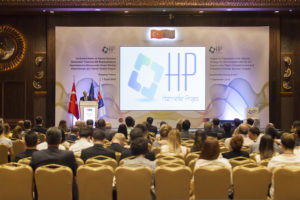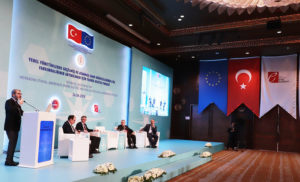
Technical Assistance for Implementation of Civil Society Dialogue and Civil Society Support Programmes (TR2015/DG/01/A5-01/001)
The overall aim of the project is to increase bilateral exchanges and cooperation between CSOs in Turkey and the EU at local, regional and national levels, to promote awareness raising initiatives on importance and benefits of membership of Turkey to the EU within Turkey and EU and on

Monitoring Human Rights Situation and Advocating for Compliance with International Human Rights Framework
The main objective of this service contract is to strengthen Turkish civil society organisations’ role in the promotion and protection of human rights through expanded civil society monitoring and advocacy at various levels. The action will provide support to civil society organisations in order to document human rights

Support to Preparation of the National Strategy for Harmonization with the EU Acquis in the “Right of Establishment and Freedom to Provide Services” Chapter – Relaunch
The negotiations have been continuing between Turkey and the European Union on the subject of “Right of Establishment (ROE) and Freedom to Provide Services (FPS).” Thus, the project aimed to generate a comprehensive action plan that identifies all necessary legislative and administrative measures in order to comply with

Technical Assistance for Increasing Ethical Awareness Among Elected and Non-Elected Local Government Officials
The project aims to promote an ethical culture and minimize corrupt behaviour within the elected and non-elected local government officials during their service provisions. Within the frame of the project, WEglobal is helping to contribute efforts on embedding ethics and combatting corruption at local administrations under priorities set

“Setting up a Programme Management Unit to Support the Implementation of Grant Schemes for the Turkish Cypriot Community”, in Northern Part of Cyprus
It can be said that countries need reconciliation, confidence-building, and support regarding civil society. In this way, the overall objective of the programme was to prepare the Turkish Cypriot community for the implementation of the acquis by contributing in particular to social and economic development including restructuring human

Technical Assistance for Strengthening Institutional Capacity of the Judiciary and Execution System for the Fight against Addiction
The contract will contribute to the improvement of institutional capacity of judiciary in terms of fight against drug addiction. In this context the contract will cover activities such as trainings, workshops, needs assessment, drug addiction awareness raising group programmes, family counselling programmes, establishment of a monitoring and integration

